087 CD / Robert Schumann. Piano Trios Vol. 2
Description
"With this recording the Abeggs have completed their collection of Schumann trios, and simply everything about this product is right [...]: on the cover, instead of the usual somewhat stilted photos of the artists, we see a lovely sketch of Schumann by Horst Janssen. And instead of vague, flowery music stories, the booklet provides an involved and analytically precise essay, in which Jan Reichow successfully paints a new picture of Schumann. The recording technology of this [...] CD [...] provides a relaxed, natural sound. [...] None of this would count for much, were it not for the Abeggs themselves, who make excellent music. [...] That is how chamber music can sound when musicians think together." (NDR)
4 reviews for 087 CD / Robert Schumann. Piano Trios Vol. 2
You must be logged in to post a review.
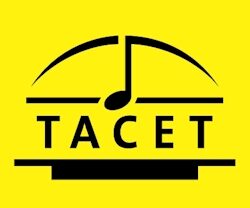
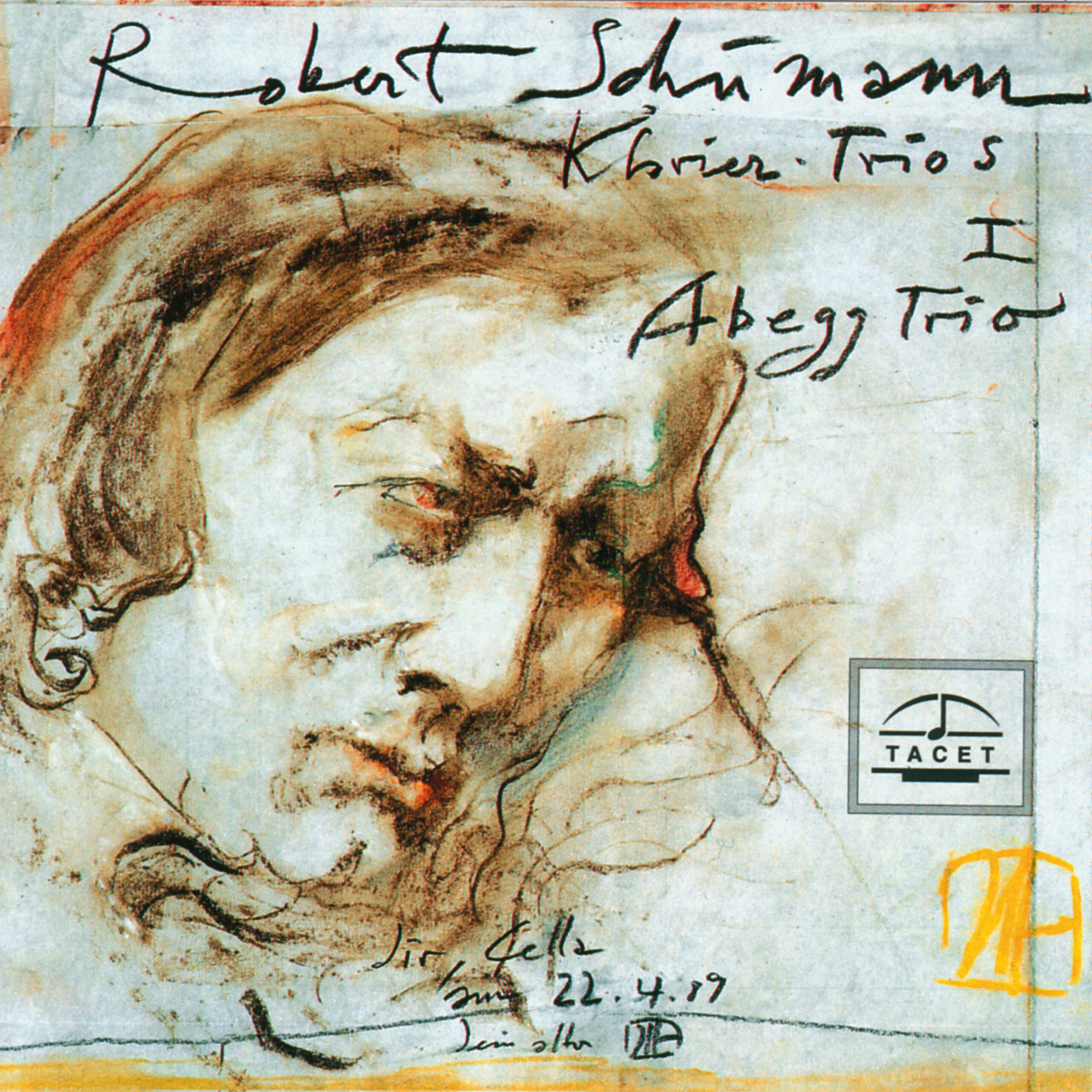
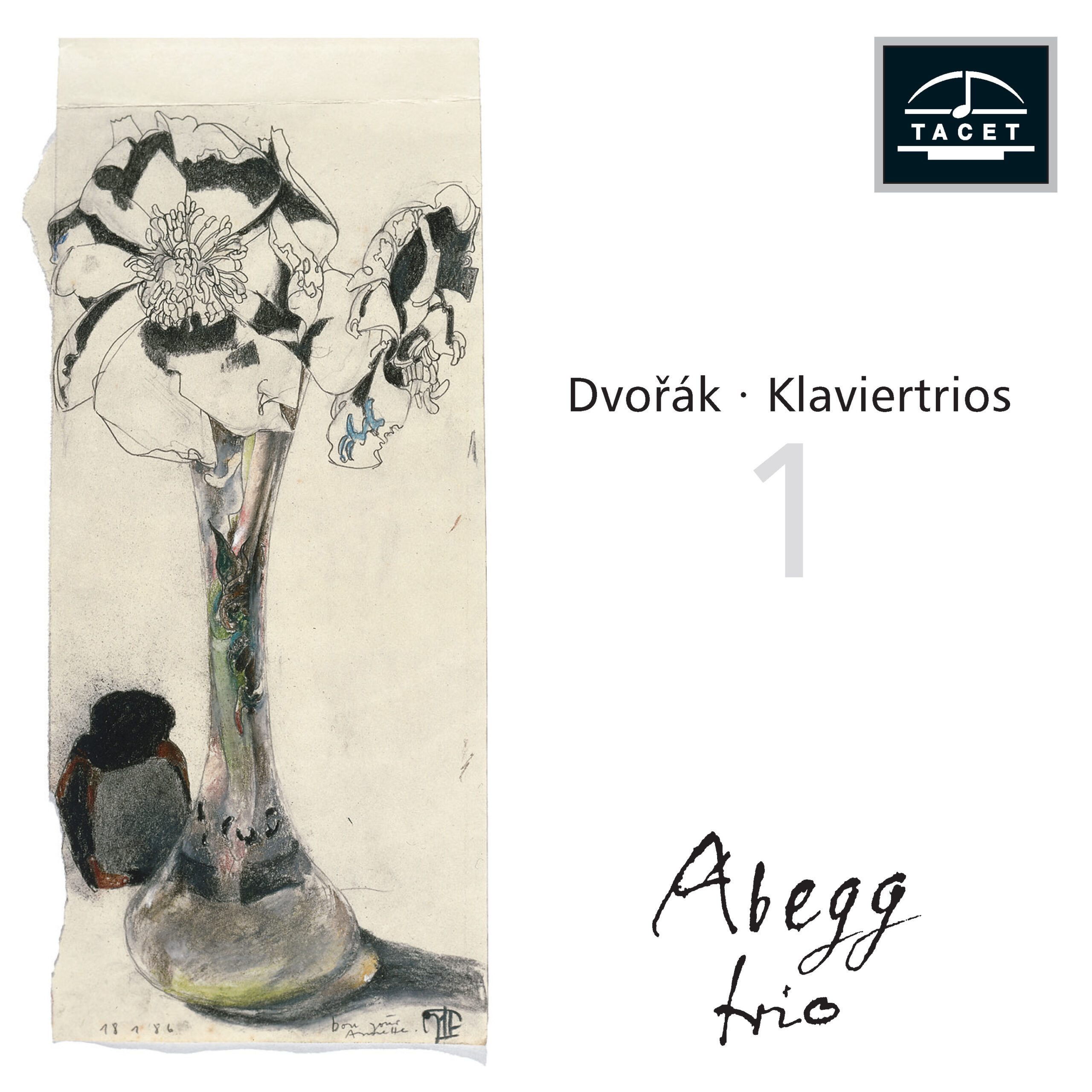
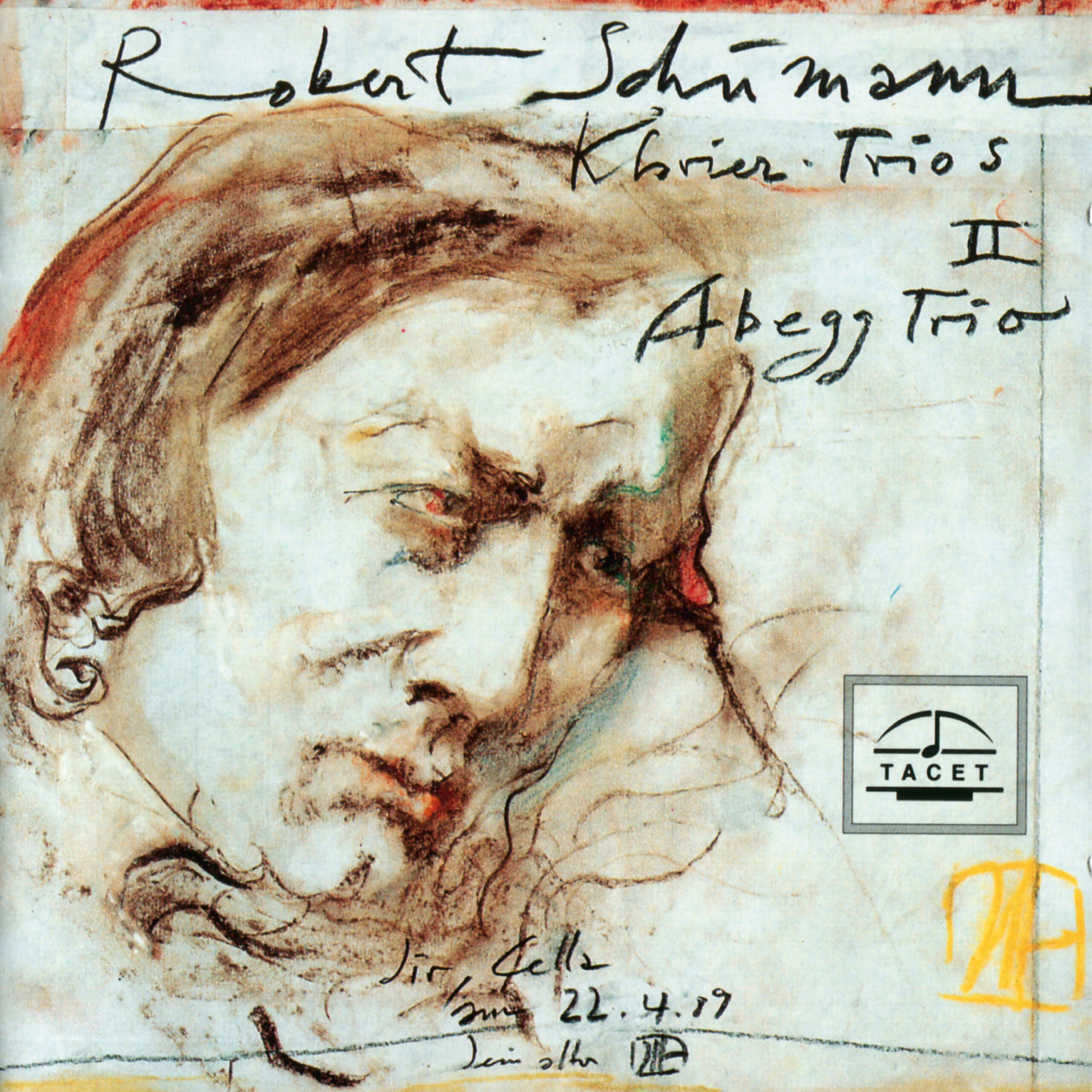
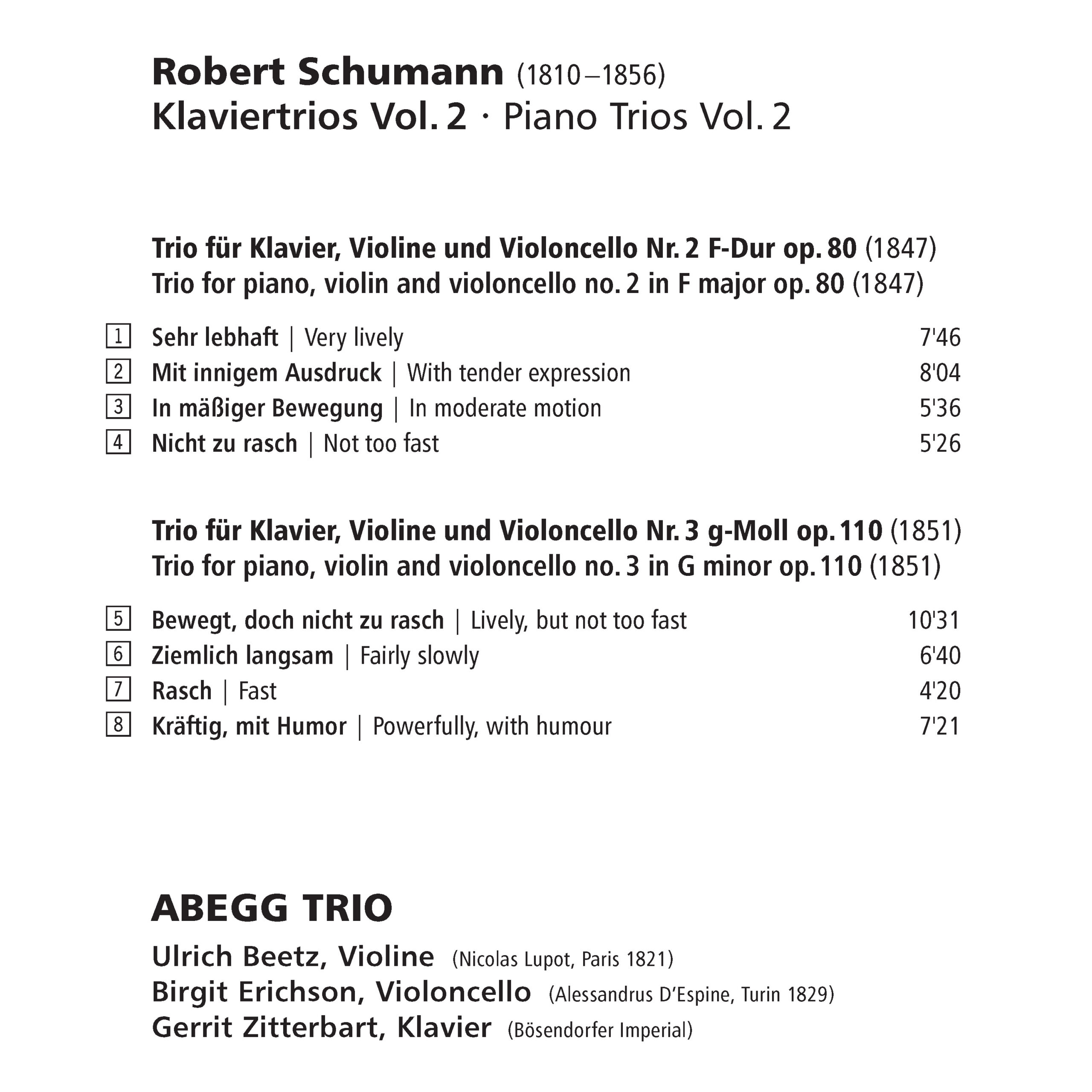
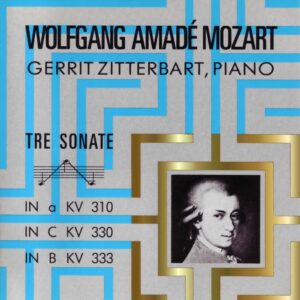
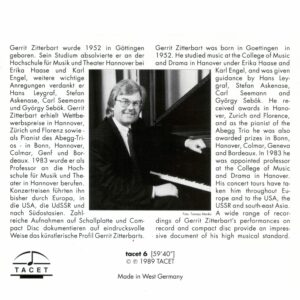
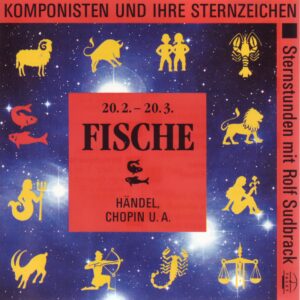
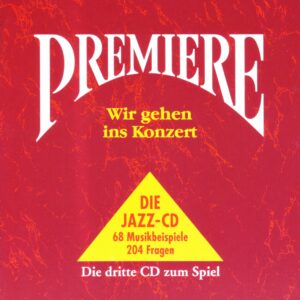
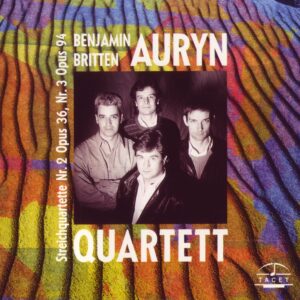
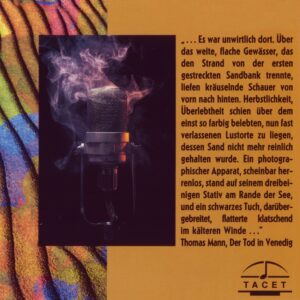
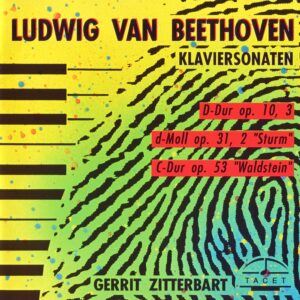
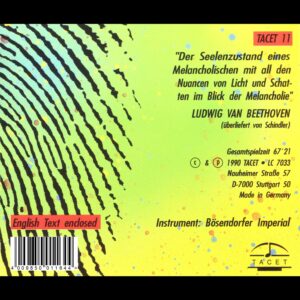
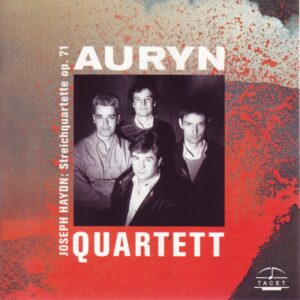
Fono Forum –
The opportunity to record all the significant works for piano trio for the Stuttgart-based label Intercord has been transformed by the Abegg Trio—founded in 1976—into steady success through perseverance and consistent artistic achievement. Following their widely acclaimed complete recordings of the piano trios by Wolfgang Amadeus Mozart and, most recently, Ludwig van Beethoven, the ensemble now concludes its project with this recording of all of Schumann’s trios. The fundamental characteristics of their earlier recordings also define this Schumann interpretation. Once again, the three musicians present a thoughtful and coherent concept. Their homogeneous, finely coordinated interplay aims for nothing more and nothing less than a modest, work-focused engagement with the score. Each contributes with disciplined expression, resisting the urge for self-promotion, which ultimately defines the individuality of this ensemble, to which any superficial gesturing is foreign.
In keeping with the recording technique, which captures the instruments with transparency and spatial definition, the interpreters’ approach to Schumann also comes across as intelligently arranged and structurally illuminating. In the end, the impression is one of a cohesive overall picture, which might have gained even more contour through more sensual string colors and, in places, a bolder touch. The elaborate design of the booklet—once again featuring a pen drawing by Horst Janssen, an enlightening accompanying text by Jan Reichow, and excerpts from the score—is as exemplary as the presentation of the Beethoven edition.
Norbert Hornig
Stereoplay –
The Abegg Trio, hitherto distinguished for recordings of Beethoven and Brahms Trios, returns – as far as the name is concerned – “to itself” with this recording; this judgment is not just a play on words. Far more, it refers to the recording itself: whereas the Beethoven and Brahms recordings were highly remarkable in themselves, the Schumann interpretation by the three musicians is utterly charming: with its natural flow, musical élan where Schumann intended it, and analytically delicate detail work where the structure requires it. And whereas there is other high-standard competition to the D Minor Trio [...] to which the Abegg Trio is supremely equal, the atmospherically dense and ′characteristic′ recording of the Fantasy Pieces is unrivalled. The recording is beautifully transparent and faithful to the score. A thoroughly worthwhile recording.
Wulf Konold
Luc Nevers –
The Abegg Trio serves Schumann’s trios magnificently, with dynamic energy and a masterful handling of the frenetic rhythms so reminiscent of folk dances. The piano often takes on a concertante role, while the colors of the two period string instruments enhance the sharpness and precision of the phrasing. When listened to in excerpts, these two volumes are particularly captivating.
However, when compared to more anguished and profound readings—such as that of the Beaux-Arts Trio—the limitations of this approach become apparent.
Luc Nevers
____________________________________
Original Review in French language:
Les Trios de Schumann sont magnifiquement servis par le dynamisme des Abegg, et par la qualité de leur mise en place de ces rythmes endiablés si proches des danses populaires. Le piano est souvent concertant et les couleurs des deux instruments anciens renforcent l′acuité et la prcécision des traits. En écoute morcelée, ces deux volumes sont particulièrement séduisants. Toutefois, la comparaison avec des lectures plus angoissées et plus profondes (celle notamment du Beaux- Arts Trio) laisse entrevoir la limite d′une telle approche.“
Luc Nevers
Fanfare-Magazin –
(...) The Abegg reissues bring Robert Schumann's Romantic intensity to soul-stirring life. (...)
Robert McColley